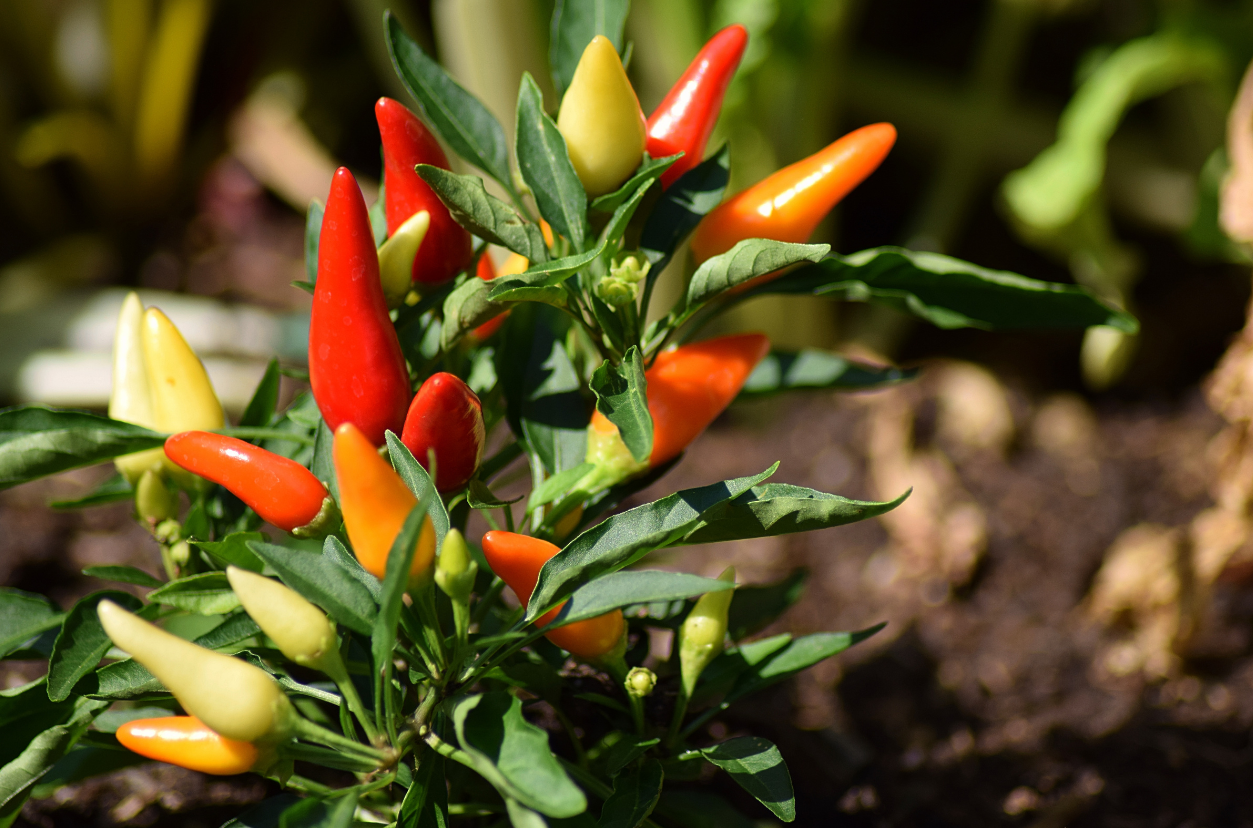Best Fertilizers for Peppers: Maximize Plant Health and Return
Best Fertilizers for Peppers: Maximize Plant Health and Return
Blog Article
Organic Vs. Synthetic Fertilizers: Which Is Best for Supporting Healthy Pepper Plants?
In the realm of supporting healthy pepper plants, the selection between synthetic and natural fertilizers stands as a crucial choice with far-reaching effects. While both choices purpose to supply important nutrients to sustain plant growth, the subtleties of their effect on the soil, plant health and wellness, and the atmosphere stimulate a discussion that mirrors throughout the horticulture area. Comprehending the unique benefits and potential pitfalls of each plant food kind is important for pepper cultivators seeking to optimize their yields while keeping a lasting and eco-conscious technique.
Advantages of Organic Fertilizers
Organic plant foods use an environmentally-friendly and sustainable method to beneficial pepper plants, giving crucial nutrients without making use of synthetic chemicals. These all-natural fertilizers are acquired from natural sources such as garden compost, manure, bone meal, and algae, promoting dirt health and wellness and biodiversity. Unlike artificial fertilizers, natural alternatives launch nutrients gradually, guaranteeing a well balanced and steady supply for pepper plants to prosper.
One considerable advantage of organic fertilizers is their capacity to boost dirt framework and water retention. By enhancing soil wellness, organic fertilizers promote valuable microbial activity, which aids in nutrient uptake by pepper plants. Additionally, natural plant foods lower the threat of chemical run-off, safeguarding water sources from air pollution and securing the setting.
In addition, natural fertilizers add to long-term dirt fertility by promoting the growth of helpful dirt organisms. These organisms aid damage down organic matter, releasing nutrients in a kind that is easily obtainable to pepper plants. best fertilizers for peppers. By fostering a healthy and balanced dirt ecological community, natural fertilizers sustain sustainable pepper farming practices that profit both plants and the setting
Disadvantages of Synthetic Plant Foods
Artificial fertilizers, in contrast to their organic equivalents, present different drawbacks when used to nourish pepper plants, impacting both plant wellness and environmental sustainability. One significant disadvantage of artificial fertilizers is their tendency to seep nutrients from the soil quickly.
Furthermore, the overuse of artificial plant foods can contribute to water contamination. Excess fertilizers not soaked up by plants can wash away into water bodies, bring about eutrophication, where algae flowers deplete oxygen levels in the water, harming aquatic life. Synthetic plant foods are commonly obtained from non-renewable sources, such as fossil gas, contributing to carbon emissions and ecological deterioration throughout their production.
Nutrient Absorption Contrast
When contrasting natural and artificial fertilizers in terms of nutrient absorption, organic plant foods have the benefit of providing an extra balanced and slow-release resource of nutrients. Organic fertilizers contain a range of macro and micronutrients that are not only beneficial for the plants yet also advertise healthy soil microbial activity, which aids in nutrient uptake.
Additionally, natural fertilizers enhance dirt framework and water retention capacity, permitting pepper plants anonymous to access nutrients more successfully. This improved soil high quality assists in origin advancement, enabling far better nutrient absorption. Synthetic fertilizers, although originally increasing plant growth as a result of their high nutrient focus, may hinder long-term nutrient absorption by derogatory dirt wellness in time.
Environmental Effect Considerations

On the other hand, artificial fertilizers, although often more focused and immediately available to plants, can have detrimental effects on the setting otherwise used properly (best fertilizers for peppers). Their production calls for high energy inputs, bring about greenhouse gas emissions and adding to environment modification. The drainage of excess synthetic fertilizers can pollute water resources, leading to eutrophication and hurting aquatic ecological communities.
Finest Plant Food Practices for Peppers
When fertilizing pepper plants, maximizing nutrient uptake and reducing ecological influence are vital considerations. To attain this, it is vital to adhere Get More Info to finest fertilizer techniques tailored to the certain requirements of pepper plants. One critical practice is to carry out a dirt test before applying any kind of plant foods. This test can figure out the pH level of the dirt and recognize any kind of nutrient deficiencies, assisting you in choosing one of the most appropriate plant food formula.
An additional important method is to feed pepper plants at the appropriate time. Typically, peppers gain from receiving plant food at planting and after that once more when they start to flower. Over-fertilizing can cause nutrition inequalities and damage the plants, so it is essential to follow recommended application rates.
Additionally, selecting a well balanced plant food with an NPK ratio that fits pepper plants' requirements is essential. Organic plant foods, such as compost or manure, can be outstanding selections as they Look At This release nutrients slowly and enhance soil structure in time. Artificial plant foods can give a fast nutrient boost when required. Eventually, combining artificial and natural plant foods judiciously can help support healthy pepper plants while reducing environmental impact.
Conclusion

Organic plant foods use a lasting and environmentally-friendly technique to nourishing pepper plants, supplying important nutrients without the use of artificial chemicals. Unlike artificial fertilizers, organic choices launch nutrients slowly, making sure a stable and well balanced supply for pepper plants to flourish.
Artificial fertilizers, in contrast to their organic counterparts, pose different negative aspects when made use of to nourish pepper plants, impacting both plant wellness and environmental sustainability. When comparing organic and artificial fertilizers in terms of nutrient absorption, natural fertilizers have the benefit of offering an extra well balanced and slow-release resource of nutrients.Additionally, natural fertilizers enhance dirt framework and water retention capability, permitting pepper plants to access nutrients a lot more efficiently.
Report this page